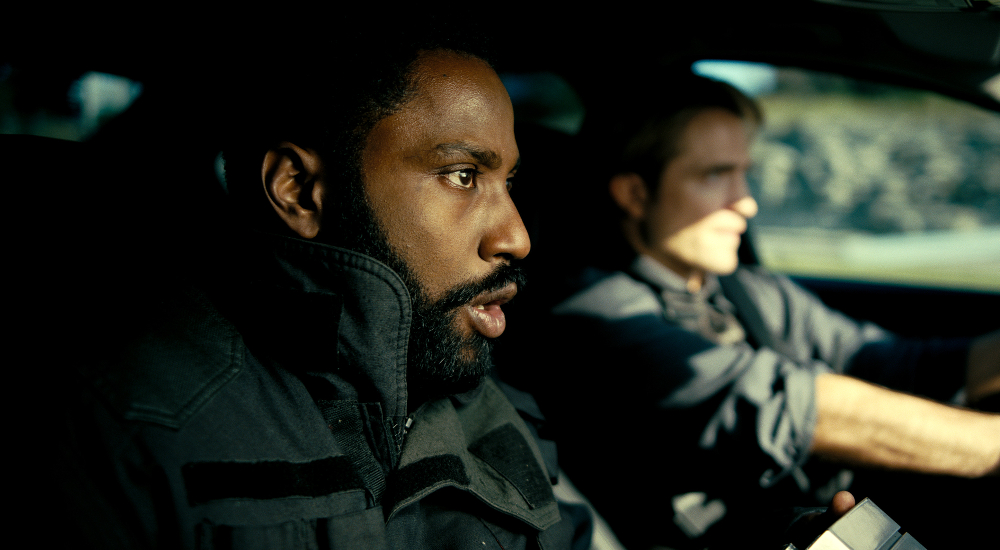"At this point, nothing surprises me."
Laden in secrecy for what feels like forever, Christopher Nolan's Tenet is a film many have been longing for since the global pandemic caused theaters to shut down in March. Now, after a slew of rescheduled release dates and a fear that we'd have to wait until 2021, the time has arrived to witness the cinematic masterpiece.
In typical Nolan fashion, Tenet is a work of pure genius that is, at times, taxed with unnecessary complexities and cleverly disguised misdirections. The famed director's formula remains intact as he works to push the barrier of understanding through a medium often seen as a visual escape. But on the other side of the compounding need to organize your thoughts as you sort through the intricacy of the plot and its leading players, you get a film that is both mentally horrifying and visually breathtaking.
John David Washington plays a CIA operative recruited by a mysterious organization known only as Tenet to participate in a global assignment that slowly unfolds beyond real time. With no information to start from, he must sort out the details, uncover the mission, and prevent the start of World War III, all while comprehending a concept that counters how we move, think, and exist: time inversion.
As one would expect, Tenet opens at a level ten. As you lay witness to an intense and violent opening sequence, the film immediately sets its tone. Put on edge, you must work to decipher the individual movements and make sense of the structured chaos. It's a lot to take in, especially at Nolan's pace. But the start is necessary considering the heightened level of adrenaline that stems throughout.
As the film progresses and we ingest more of the story's intricate details, supporting players allow the larger picture to take focus. Robert Pattinson shines as Neil, a proverbial sidekick to our main protagonist. Don't be fooled, Neil has secrets, none of which he is willing to share. He relies on trust to navigate the assignment's murky waters, always a step ahead of his counterpart as they work to uncover their primary purpose within the context of the new world. Though overlooked until the final moments, Pattinson's chemistry with Washington is one of the more essential aspects of the film. It allows the narrative structure to close and bring a greater sense of understanding of the film's primary directive.
Elizabeth Debicki plays Kat, a smart but overextended wife to Kenneth Branagh's Andrei Sator, the man at the center of a potential world war. Debicki earns high marks for her performance. Kat's unique blend of independence and naiveté allows her to appear authentic and relatable. Her heartache is real as she struggles to survive a relationship she isn't happy in for the sake of her son. That said, her romantic connection with our main protagonist proves to be one of the film's few forced elements.
Those occasional missteps are more than compensated for by the film's near-flawless presentation. Backed by an incredible score by Ludwig Göransson, we are gifted an artistic creation that successfully challenges the way we think, forging the industry into new, welcomed territory.
Though the film does lull you into a state of unwarranted safety, everyone, even Washington, is disposable. They are all a piece in Nolan's creative arsenal, free to be deployed however he sees fit. The move isn't revolutionary; however, it does add some interesting uncertainties to the paradoxes that can get in the way when you begin to reconceptualize time and its generational effects.
Unlike his past works, which, in their own right, are masterful artistic achievements, there is something different about Tenet. I'm not convinced that the feeling isn't directly related to the theatrical experience. Regardless, this film is one of Nolan's most complete works, sophisticatedly layered and original, giving fans the perfect reason to return to the cinema.

